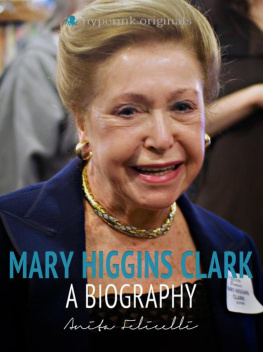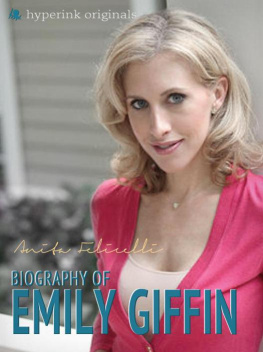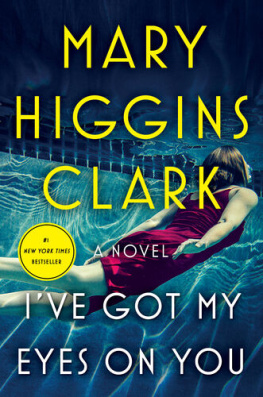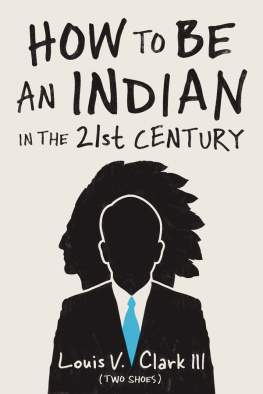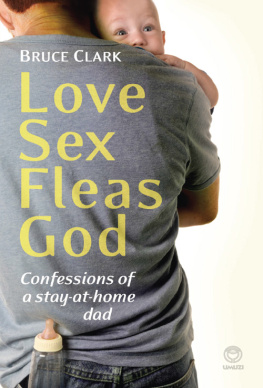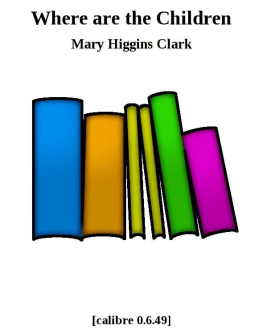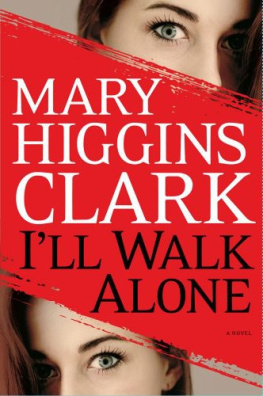Mary Higgins Clark: A Biography
I.
Mary Higgins Clark: A Biography
Introduction
Adversity was the driving force behind bestselling suspense author Mary Higgins Clarks international success. The death of Clarks first husband under circumstances similar to those in which she lost her father as a young girl left her in a desperate situation. Raising five children alone on limited means, Clark turned to novel writing to supplement her income. Although Clarks success wasnt instant, she eventually forged a brilliant career with her storytelling talents, and created a multimillion dollar, international brand.
At various points, some professional commentators have criticized Clarks novels as formulaic and poorly written. Ever-resilient, Clark chalks this criticism up to the critics belief that if the masses like it, it cant be good. She believes the most important critics are her readers and that her chief talent is storytelling, rather than writing. With more than 40 bestselling books that masses of readers all over the world buy regardless of the critics opinions, Clark looks like she will have the last laugh.
As the critics note, Clark does have a formula. The question is really whether its a bad formula, in light of the fact that it has worked on all of her bestsellers. Many of her heroines are Irish-American, smart and beautiful, caught inexplicably in a dangerous situation for which they bear no responsibility.
Where readers and critics alike have commented that her heroines are weak, Clark believes that they are self-made professional women and therefore strong and independent. She says that the choice to have independent heroines is intentional: In almost all my books she is self-made in her job or profession. She recognizes the problem and solves it. It is the kind of woman I admire and I think todays reader expects of me.
Although her novels are free from gore, obscenities, sex and even premarital cohabitation, they frequently have a storyline that includes a controversial, relevant problem. And despite the fact that some of her novels have glamorous, ritzy settings, many of Clarks other novels grapple with serious issues such as ethics in law and medicine. She consults with law enforcement officials, lawyers, doctors and other professionals in order to maintain realism. While some of her plots may seem silly when converted to film or television (none of the screen adaptations of her work have been particularly well-received), Clarks novels incorporate a lot of research.
How Mary Higgins Clark Got Her Start
Mary Higgins Clark was born Mary Theresa Eleanor Higgins on December 24, 1927. Raised in an Irish-Catholic home, she was the second-born of Luke and Nora Higgins, who owned a restaurant pub in the Bronx, Higgins Bar and Grille. Her father was an Irish immigrant from County Roscommon and her mother, of Irish descent, was born in America.
Her family valued and encouraged storytelling, which Clark sees as a cultural trait of the Irish. Growing up, Clarks four aunts and her mother regularly sat around the table, drinking tea and telling stories. Clark wrote her first poem when she was six. Her mother asked her to recite the poem to guests and said Clark would be a successful writer when she grew up . Clark has remarked that despite all of the rejection letters she received early in her writing career, her mothers absolute vote of confidence kept her going.
Although the first entry in her diary was Nothing much happened today, Clark kept a journal in which she wrote substantively for years, starting at age 7. Authors that influenced her as a child were the Bronte sisters, Dickens, Betty Smith and Louisa May Alcott.
As the Great Depression raged on, Clarks family joined the rest of the country in a state of financial distress. Her father had to terminate one of his bartenders and work 20 hour days to support the family of five. Later Clark expressed gratitude that her childhood asthma kept her at home as a small child, so that she was able to spend time with him.
When Luke Higgins passed away in his sleep in 1939, Clarks mother, who hadnt worked in 14 years, was unable to get a job; they took in boarders to make ends meet. While Clarks brothers were apprehensive about the arrival of boarders, Clark looked forward to them, hoping that the presence of additional adults would ease the ache of losing her father. Everyone in the family worked in order to help out with finances; Clark started babysitting.
Clark received educational tutelage under Catholic nuns at St. Francis Xavier Grammar School and then at Villa Maria Academy. While at Villa Maria Academy, she wrote stories, even during math and science classes. She won the Best Actress in the Bronx contest and wanted to attend the American Academy of Dramatic Arts. At age 16, she also unsuccessfully tried to sell her first short story to True Confessions magazine.
In order to make ends meet, she took a job as a switchboard operator, listening in on conversations without being detected. One of the people on whom she eavesdropped was Tennessee Williams, at that time a would-be playwright. She didnt find him interesting (and according to her memoir, years later, he didnt find her first bestseller impressive either).
While she was in high school, Clarks older brother joined the Navy, but died of spinal meningitis six months after shipping out. After graduating high school, Clark attended Woods Secretarial School in order to be able to contribute to the family finances. After school, she wrote copy for catalogs and also modeled. She found a job with advertising agency Remington Rand where she was able to sit in on creative meetings.
Clark had been working in advertising for three years when she heard a friend who was a Pan Am stewardess say, God, it was beastly hot in Calcutta. Inspired, Clark decided she, too, would see the world as a stewardess. She and her best friend went to the Pan Am offices the next day.
From age 16, Clark had romantic feelings for her older brothers friend Warren Clark, who belonged to their parish. The feelings were not mutual at first. At one point, Warren even joked to Clarks brother, Whod marry your sister? Undeterred, Clark was certain one day he would want to marry her. She invited him to a farewell dinner with her boss and his wife. During after-dinner drinks, they clicked and Warren made a list of prospective weddings guests for his and Clarks wedding. He told her that they knew they would be married at Christmas, but to get flying out of her system in the meantime. He also turned Clark (whose mother was a Democrat) into a Republican when she registered to vote.
After a year as a stewardess jet-setting around Europe, Africa and Asia, Clark married her first husband in a school auditorium. When they returned from their honeymoon, she decided to take a writing class at New York University taught by William Byron Mowery.
During the class, the professor told the students to take a real-life dramatic situation and ask two questions: Suppose? and What if? before creating a fictional piece. He pointed to Clark and said, Write about what you know. During the class, she wrote a short suspense story, Stowaway, following her professors advice; the plot of the story sprang from her last flight to Czechoslovakia as a stewardess.
She sent the story to magazines listed in Writers Market , meeting rejection after rejection. Six years and 40 rejections later, ExtensionMagazine accepted Stowaway, paying Clark $100.
There continued to be rejections the editor of Redbook told her that her stories were light, slight and trite. But that first acceptance led to the publication of many more short stories in a range of magazines that included McCalls and Saturday Evening Post

